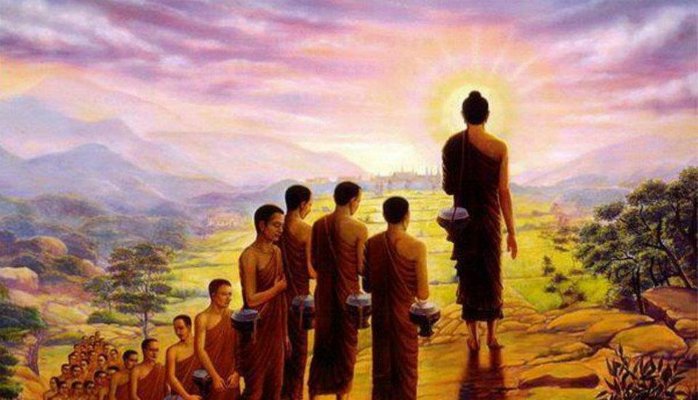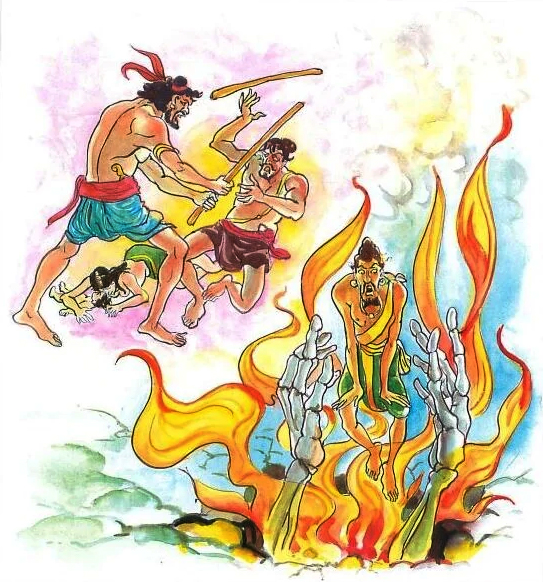The Story of Vitatubha
Verse 47: Like one who picks and chooses flowers, a man who has his mind attached to sensual pleasures is carried away by Death, just as a great flood sweeps away a sleeping village.
The Story of Vitatubha
While residing at the Jetavana monastery, the Buddha uttered Verse (47) of this book, with reference to Vitatubha, son of King Pasenadi of Kosala.
King Pasenadi of Kosala, wishing to marry into the clan of the Sakyans, sent some emissaries to Kapilavatthu with a request for the hand of one of the Sakyan princesses. Not wishing to offend King Pasenadi, the Sakyan princes replied that they would comply with his request, but instead of a Sakyan princess they sent a very beautiful girl born of King Mahanama and a slave woman. King Pasenadi made that girl one of his chief queens and subsequently she gave birth to a son. This son was named Vitatubha. When the prince was sixteen years old, he was sent on a visit to King Mahanama and the Sakyan princes. There he was received with some hospitality but all the Sakyan princes who were younger than Vitatubha had been sent away to a village, so that they would not have to pay respect to Vitatubha. After staying a few days in Kapilavatthu, Vitatubha and his company left for home. Soon after they left, a slave girl was washing with milk the place where Vitatubha had sat; she was also cursing him, shouting, “This is the place where that son of a slave woman had sat”. At that moment, a member of Vitatubha’s entourage returned to fetch something which he had left at the place and heard what the slave girl said. The slave girl also told him that Vitatubha’s mother, Vasabhakhattiya, was the daughter of a slave girl belonging to Mahanama.
When Vitatubha was told about the above incident, he became wild with rage and declared that one day he would wipe out the whole clan of the Sakyans. True to his word, when Vitatubha became king, he marched on the Sakyan clan and massacred them all, with the exception of a few who were with Mahanama and some others. On their way home, Vitatubha and his army encamped on the sandbank in the river Aciravati. As heavy rain fell in the upper parts of the country on that very night, the river swelled and rushed down with great force carrying away Vitatubha and his army into the ocean.
On hearing about these two tragic incidents, the Buddha explained to the bhikkhus that his relatives, the Sakyan princes, had in one of their previous existences, put poison into the river killing the fishes. It was as a result of that particular action that the Sakyan princes had to die en masse. Then, referring to the incident about Vitatubha and his army, the Buddha said, “As a great flood sweeps away all the villagers in a sleeping village, so also, Death carries away all the creatures hankering after sensual pleasures.”
Then the Buddha spoke in verse as follows:
Verse 47: Like one who picks and chooses flowers, a man who has his mind attached to sensual pleasures is carried away by Death, just as a great flood sweeps away a sleeping village.
Dhammapada Verse 47
Vitatubha Vatthu
Pupphani heva pacinantam
byasattamanasam naram
suttam gamam mahoghova
maccu adaya gacchati.
Source: Tipitaka










